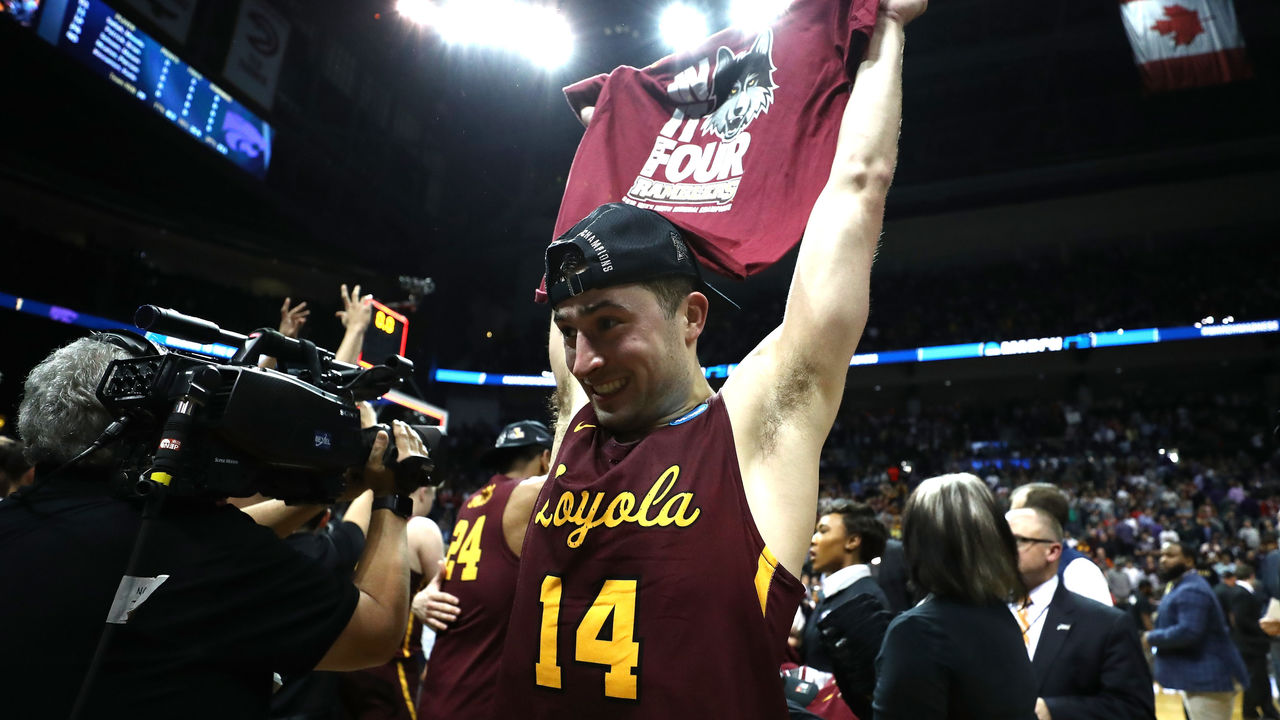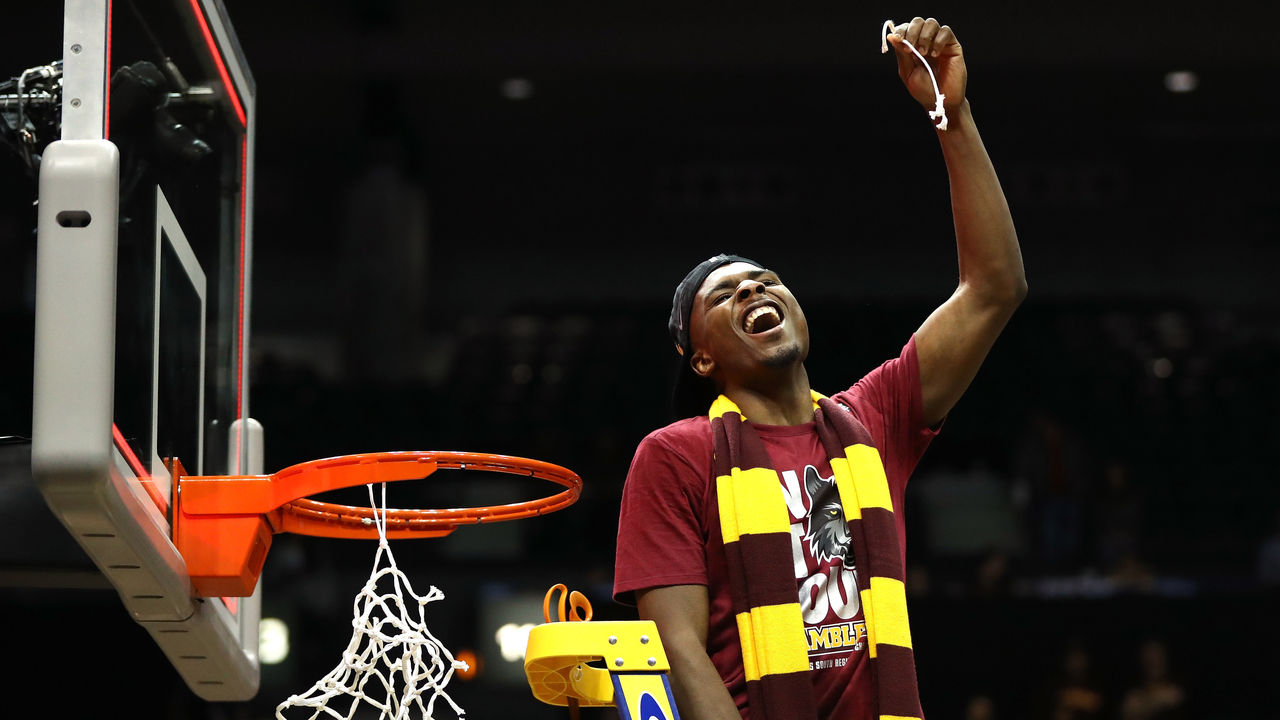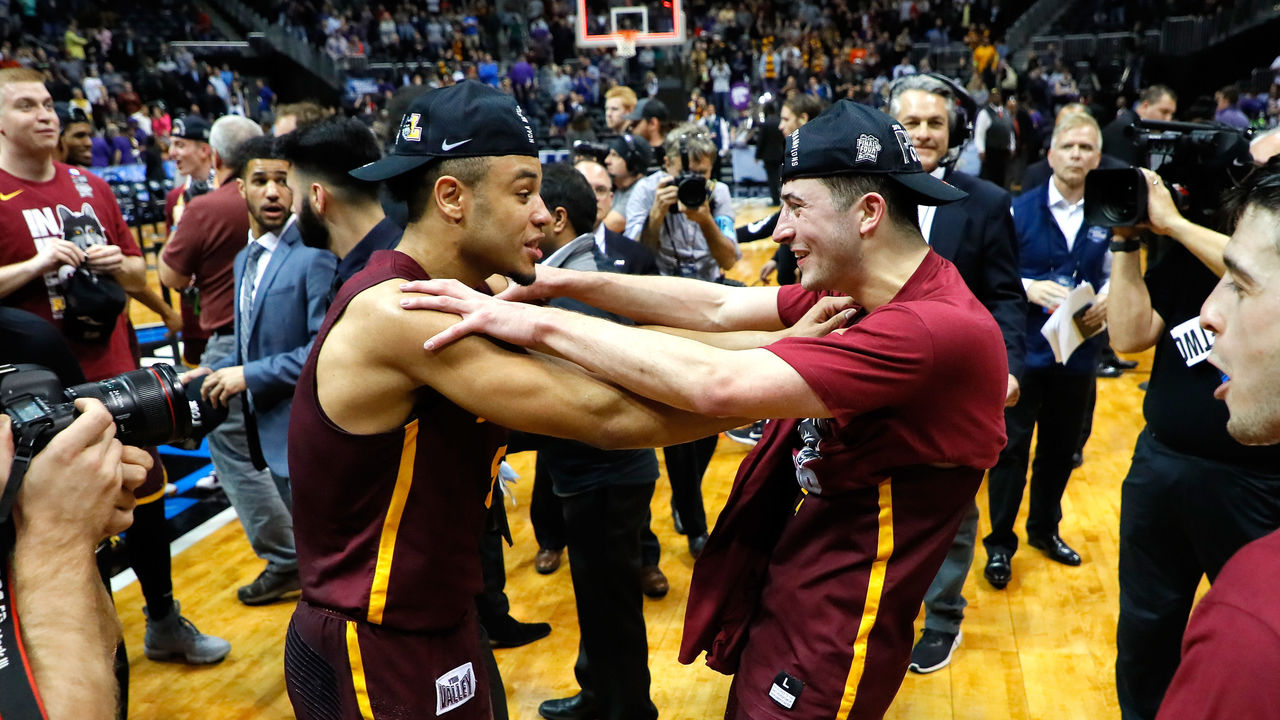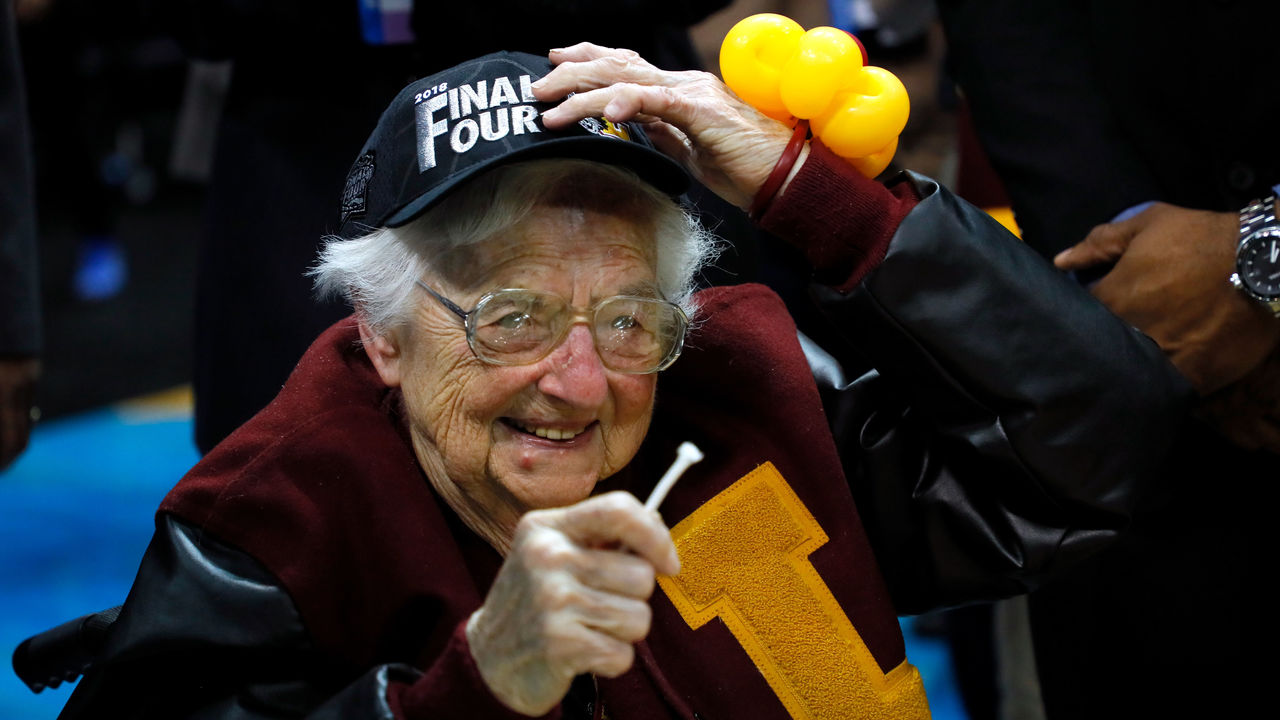Rambling on: Life after Loyola's Cinderella run to the Final Four
At times during Ben Richardson's rookie season of pro basketball, the Kansas native has paused on a court in Krosno or Koszalin or Ostrow Wielkopolski, momentarily awed and immobilized by a play he never thought he'd witness in the midst of a game in Poland. Sometimes it's a pass between a defender's legs. Occasionally, the passer lobs the ball to a teammate by way of the backboard.
"There are little things here and there where you're like, 'Oh. That's kind of something new,'" Richardson told theScore.
Richardson has his own track record of accomplishing the unexpected; it’s why fans who don't live in his home state or attend his collegiate alma mater in Chicago may nevertheless recognize his name. A year ago, his Loyola Ramblers stunned Miami in the first round of March Madness on a last-second three, coolly stroked from the front edge of the tournament logo at midcourt. Matters got commensurately crazier when the 11-seed won three more games and made the Final Four.
The Ramblers attained darling status in that national tournament thanks partly to their association with Sister Jean - the smiling 99-year-old nun who leads the team in pregame prayers from her wheelchair - and partly to the shots and showings that powered them through the South Regional bracket. Donte Ingram hit the late dagger against Miami. Clayton Custer’s rim-rattling pull-up silenced Tennessee in the next round.
Richardson himself scored a game-high 23 points in an Elite Eight rout of Kansas State. He's gone on to fulfill the fate of every senior-year Cinderella swept from obscurity into the national spotlight at the tail end of their college career: finding work in a basketball hinterland and disappearing, for the most part, from stateside sight and mind.
This March is the first in life after the Final Four for the 6-foot-3 guard, now a member of MKS Dabrowa Gornicza in Poland's top pro league, and Ingram, a 6-foot-6 backup swingman for the Dallas Mavericks' G League affiliate, the Texas Legends. Both players will watch from afar this weekend as their old teammates try to win the Missouri Valley Conference tournament, which would guarantee the Ramblers a return trip to March Madness.
The experience will be stirring and strange. Loyola hadn't made the NCAA Tournament in 29 years when Richardson and Ingram arrived on campus as freshmen in 2014. They devoted every minute of the next four seasons to building the program up, Richardson explained, in hopes of achieving something special.
"Then it's over, and you walk away," he said. "There's no going back."

Before last March, Loyola was remembered in college basketball lore primarily for winning the national title in 1963, a season in which the Ramblers became the first NCAA program to put five black players on the court at once. Pioneering head coach George Ireland guided Loyola to four appearances in the national tournament that decade, a feat the program didn't replicate until 1985.
The Ramblers' decades-long marriage to mediocrity finally shifted for the better last season, when Loyola posted a school-record 15 wins in conference play; beat Northern Iowa, Bradley, and Illinois on consecutive days at the MVC tournament in St. Louis; and proceeded to upset nationally ranked Miami, Tennessee, and Nevada by a combined margin of victory of four points.
Loyola's incredible run crescendoed last March 24 with a 78-62 thumping of Kansas State. That win made the Ramblers the highest seed to reach the Final Four since the VCU Rams in 2011. It also took the nationwide fanfare surrounding the team to a new level.
"Every second, your phone's just buzzing, buzzing, buzzing, buzzing," Richardson said. "Donte's shot against Miami was one of the first really big moments of the tournament. From that point on we had the spotlight on us, and we still found a way to handle our business through the next couple weeks."
"The whole month," Ingram said, "you don't want March to end."

As it was, Loyola's season ended on the last day of the month with a 69-57 loss to Michigan. The Ramblers led the national semifinal by seven points at halftime and by 10 with 14 minutes to go, but they were outscored 38-16 the rest of the way.
"It hurts because I'm not going to be able to go out there with my guys anymore," Richardson said on ESPN after the game. "But we're proud."
A knockdown 3-point shooter in college and his conference's defensive player of the year last season, Richardson now applies those attributes as a starter in Dabrowa Gornicza, a 120,000-person city an hour northwest of Krakow. His squad plays fast in a physical league where a plodding pace is the norm. Most of his contemporaries are complete players who compensate for a lack of hops and speed with skill, such as their affinity for creative passes.
Ingram caught on with the G League's Legends this past fall after going undrafted and playing for his hometown Chicago Bulls at summer league in Las Vegas. He's averaging 2.9 points in 14 minutes a game off the bench, rotating through the two-, three-, and four-spots on a 15-28 team for which no fewer than 30 players have suited up at least once. (His teammates include Quincy Acy and Kostas Antetokounmpo, Giannis' 21-year-old brother.)
Allegiance to the Ramblers transcends distance and continues to bind them. In a group chat they share with several former teammates, Richardson and Ingram try to uplift the players who are still at Loyola and reminisce, on occasion, about their trip to the Final Four - and about the togetherness that Richardson believes made the whole run possible.
"We had so much love for each other," he said.

Such expressions of endearment are common among the rare mid-majors that string together a few wins at March Madness. Besides Loyola and VCU in 2011, the only recent 11-seed to make the Final Four was the 2006 George Mason Patriots, a remarkably balanced team whose starters - three seniors and a pair of sophomores - each played more than 30 minutes a game and averaged point totals in the double digits.
"We were truly brothers, man," said Jai Lewis, George Mason's leading scorer that season. "We knew each other like the back of our own hand on and off the court."
Familiarity with one another and muscle memory from last March are on the Ramblers' side as they enter the MVC tournament in St. Louis this weekend. Despite losing Ingram, Richardson, and sixth man Aundre Jackson (who now plays in Iceland), this year's Ramblers can and do still count heavily on three players who featured prominently in the Final Four run: Custer, fellow senior guard Marques Townes, and sophomore big man Cameron Krutwig.
At 19-12 with a 12-6 record in conference play, Loyola won a share of the MVC regular-season title and edged the Drake Bulldogs for the first seed in the conference tournament.

That favorable standing, however, belies Loyola's uneven performance. The Ramblers' offense is one of the worst in Division I: Their 66.2 points per game rank 317th of 351. They dropped three of their last six games and lost twice this winter to potential semifinal opponent Missouri State, including a 70-35 shellacking on the road Jan. 23.
That inconsistency put Richardson at risk of staying up all night to brood every time he streamed a game at 3 a.m. in Poland. ("Sometimes, if they lose, it's probably a good thing I didn't watch," he said.) It also means that winning the conference tournament is Loyola's only route back to March Madness.
The flipside of inconsistency, of course, is the quality play the Ramblers have shown in flashes. They pounded Drake 85-74 and 86-64. Their defense concedes just 60.9 points against per game, seventh in the whole country. And to Ingram, the adversity the Ramblers have faced this year can be seen as a positive: crucial preparation for the month in which the games matter most.
He and his cohort are well aware that March is an entirely new season. They know better than to be taken aback by the unexpected.
"Once you make it to the dance, once you make it to the national tournament, you can do whatever," Richardson said.
"At that point, anything can happen."
Nick Faris is a features writer at theScore. He’s on Twitter @nickmfaris.